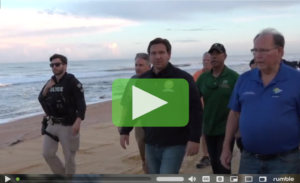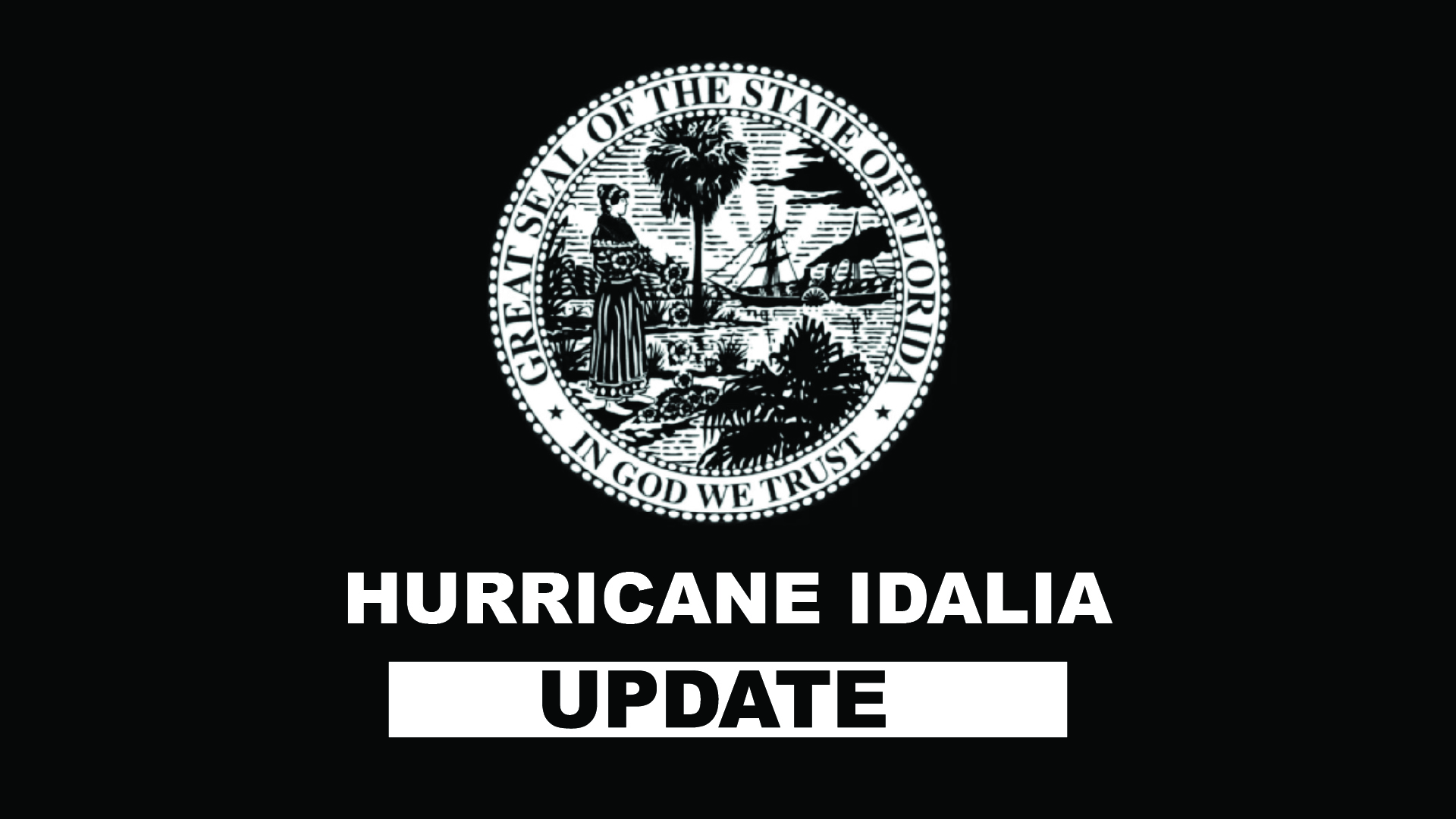Use courtesy of the Executive Office of the Governor
FLAGLER BEACH, Fla. – Today, Governor Ron DeSantis joined local officials in Flagler and Volusia counties to assess damage from Hurricane Nicole due to coastal flooding and beach erosion. Following the tour of impacted areas, Governor DeSantis announced that he has directed the Florida Department of Environmental Protection (DEP) to utilize $20 million of existing funding for emergency sand placement to help local governments address the significant dune and beach erosion caused by Hurricanes Nicole and Ian. Governor DeSantis has also directed DEP to identify additional resources and has called on the Legislature to help secure funding to fully repair impacted beaches and better protect these communities from future storm events.
“We will help our coastal communities fully recover from the impacts of Hurricane Nicole,” said Governor Ron DeSantis. “This $20 million will address immediate, emergency needs across several storm-impacted beaches while we work to identify additional funding to replace infrastructure and help the area rebuild.”
“Securing our coastal roads and restoring our local beaches is a top priority,” said Speaker Paul Renner. “I am grateful to Governor DeSantis for emergency funding to immediately address the needs in our community to help our state bounce back from the effects of Hurricane Ian and Nicole.”
“The department is thankful for the leadership of Governor DeSantis on hurricane recovery and coastal resilience for the state of Florida,” said DEP Secretary Shawn Hamilton. “Beaches are the lifeblood of this state and they are vital not only to the environment and the state’s economy, but are most importantly, our first line of defense against storms. We look forward to working with the counties impacted by Hurricane Ian and Nicole to restore our beaches.”
The Florida Department of Transportation (FDOT) has also been working to immediately stabilize and repair roads and bridges that were impacted by Hurricane Nicole, including State Road (S.R.) A1A. FDOT is performing several emergency repairs and was able to reopen S.R. A1A in St. Johns County within 24 hours of landfall.
“I’m thankful for the support of Governor DeSantis that has allowed FDOT to immediately begin the recovery process for affected Floridians,” said FDOT Secretary Jared W. Perdue, P.E. “I’m incredibly proud of our FDOT crews who were already staged around the state before Hurricane Nicole’s landfall and didn’t waste a minute starting assessments and emergency repairs. With completed temporary repairs to S.R. A1A in St. Johns County, FDOT continues working at the additional damaged areas of S.R. A1A in Flagler and Volusia counties and looks forward to continued coordination with the Department of Environmental Protection to ensure our beaches are restored and renourished to healthy conditions.”
The impacts of Hurricane Nicole on coastal communities exacerbated the impacts that Hurricane Ian had on the same areas. In September, Hurricane Ian made landfall at Cayo Costa in Lee County, then traveled across the state. When Ian exited the Florida peninsula in Volusia County as a Tropical Storm, it quickly strengthened to a Category 1 just offshore of Volusia and Flagler counties, causing heavy beach and dune erosion. When Hurricane Nicole impacted Florida’s East Coast, it caused significant additional beach damage from high waves, storm surge and coastal flooding. As a result, several buildings in both counties have been deemed unsafe, and important infrastructure was damaged.
A wide, nourished beach system absorbs wave energy, protects upland areas from flooding and mitigates erosion. A healthy beach provides a buffer between storm waves and landward areas, and prevents destructive waves from reaching the dunes and upland developments.
###
.jpg)







.jpg)
